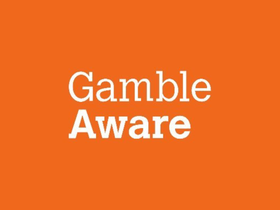Up until recently, US sports fans had limited options for legal and regulated sports betting sites on which to place their wagers. However, the online sports betting industry has quickly become the fastest-growing gambling business in the States. Gone are the days of having to turn to sketchy offshore sites any time you wanted to place a bet on your favorite team. With more than half of the US states now offering legalized sports betting, there are more legitimate options than ever before. With so many safe, legal, and trustworthy sportsbooks to choose from, there is no reason to put your money, identity, personal info, or safety at risk by gambling on an illegitimate site.
All licensed sportsbook operators have to meet stringent requirements in order to operate, which include extensive customer protection. Playing on legal online sportsbooks in the US provides an array of benefits, including generous promotions, peace of mind, customer support, and helping your local community, all while keeping your funds and data safe and secure. In case of any sort of dispute, you have reliable options to launch complaints while the same cannot be said about illegal operators.
With so many great legal operators in the US, how do you decide which one to sign up with? Which sportsbook is best? What kind of red flags should you look for to tell if a site is a dangerous offshore one? What are the green flags that show you a site is trustworthy and safe?
Trying to sort out the answers to all of these questions while wading through a sea of options and search results can be tricky and overwhelming, to say the least. That’s why we put together this guide to the 5 Biggest Red Flags to Watch Out for When Choosing an Online Sportsbook. Follow these tips to figure out which sites to trust and which to stay away from.
#1: Shady Domain Name, No Official Regulator Seal
The most glaring way in which offshore sites try to attract US customers is actually rather obvious — they broadcast right on their homepage “All US Players Welcome,” in an attempt to lure you in. This is an obvious red flag. Since sports betting is not legal in all states, no site can legally offer betting to “All US Players.” If you see this on a site, it is a dead giveaway that it is not a licensed site in one of the regulated US states.
You should also always turn a critical eye towards the site’s URL. If its domain name ends in .eu, .org, .lv, or .ag, it is not a regulated site. Some of these sites can be very convincing and look extremely professional. They will promise you the “best bonuses” to try and entice you to sign up for an account.
Always look for the regulator’s seal. Offshore sites will also often say right on them that they are licensed through an international gaming authority. Unless the site holds a license from the state in which you are located, it is illegal both for you to gamble on it and illegal for the site to accept your wagers.
Legal US operators are required to clearly display the seal of the state’s online gaming regulator on their platform for everybody to see. When you see that seal, you know the site has gone through an arduous and thorough background check and licensing process and that it meets very specific requirements to ensure all your data and funds are safe.
For extra security, you can also check your state regulator’s website, where they will list every operator that holds a valid license in that state. If you see the state regulator’s seal on the operator’s site and/or you see them listed on the approved list, then you can rest easy and play with peace of mind.
#2 Outrageous Odds, Unreasonable Bonus Offers, & the Fine Print
When it comes to offering bonuses for new and existing customers, legal operators won’t be promising over-the-top deals that sound too good to be true. Turning a careful eye towards the fine print should reveal the full terms and requirements to clear the bonuses. All regulated sites are legally required to disclose these crucial details in order to retain their license.
If you can’t find the terms and conditions for whatever deal they are promising, that’s a big red flag and often a trap, designed to pull you in with promises of big bonuses hiding absurd and totally unfeasible requirements to ensure you can never actually meet them. If somehow you do clear the requirements, then they still might not pay you. Offshore sites are notorious for giving customers the runaround when it comes to processing withdrawals. Sometimes the site even disappears and takes your money with it. If it’s not a regulated site, there isn’t much you can do as US regulators have no jurisdiction over international sites.
The odds on most wagers are very similar across all licensed platforms in each state, while offshore operators might lure bettors with unrealistically high odds. In order to maintain overall fairness and integrity, independent auditing firms regularly verify that accurate, correct, and fair odds are available on all licensed sports betting platforms. Inflated odds or deals that are too good to be true (they always are)
The site also cannot simply alternate or cancel placed wagers without consequences. If they do, then customers can contact their local gaming authorities to file a dispute through official channels.
If an operator is not conducting its business in a legal, ethical, and transparent way, it puts itself at risk of losing its license — not just in that particular state, but it could even lose its right to legally operate in the US altogether. No official site operating in a regulated market would risk that for a small short-term profit.
#3: Fishy Payment Options, Unsecure Funds
When it comes to payment options, offshore operators have an armada of solutions at their disposal. This includes not only eWallets and credit cards but also foreign currencies and volatile cryptocurrencies. Any time you see a site that accepts crypto or currencies other than USD, it’s an instant red flag that gives their status away, as regulated sites do not accept these in any capacity to avoid the threat of money laundering. On legally operating US sites, payments are transparent and can be traced at all times.
Licensed US sportsbooks are also required to hold the customer funds in segregated accounts, which is vital for the safety and security of the funds. The money is always available to the customer to use or withdraw as they please, while this may not be the case for offshore sites.
Should an offshore site suddenly shut down, it would most likely take your funds with it, never to be seen again. Furthermore, you have no control over what your funds may be used for while in the offshore operator’s hands. They could use your money to fund criminal activity, in money laundering, for the site’s operational costs, or any other nefarious ways.
These scenarios happen more often than you might think and should something happen to you or your funds while gambling on an offshore site, it will be essentially impossible to recoup your funds and the international gaming authorities will have very few ways to intervene.
#4: No Well-Known or Established Gaming Partners
In order to obtain and retain a license in a regulated US state, sportsbooks are required to partner up with a brick-and-mortar casino. This adds another layer of security to the equation as pretty much all of these casinos have already proved themselves to be trustworthy and have spent years building a solid reputation. Players can also visit these casino venues to access their funds during business hours in order to deposit or withdraw money.
Many casinos have their own sportsbook operations and provide additional retail spaces at their land-based casino to their online partners. Oftentimes, through these big brand partnerships, come extra rewards like cross-platform promotions and rewards programs. Loyalty programs offer various ways to unlock rewards, bonus credits, or free bets just by through your regular gaming activities. And you definitely won’t find any of these loyalty programs, promos, or rewards on offshore sites.
In addition to partnering up with land-based casinos, many sportsbooks are also partnered with and endorsed by celebrities, athletes, and entire sports teams. This recent trend of partnerships offers much more to sports fans wagering on legal sites in regulated US states.
Not only have the well-known sportsbook brands teamed up with some celebs and pro sports teams but they also offer some incredible VIP perks through their platforms as well. This not only includes opportunities to attend games but also meet-and-greets with sports stars and other unforgettable experiences that any sports fan would be thrilled to have. Who wouldn’t dream of a party with DJs in New York or chatting with a former NFL and movie star before an intense game with VIP seats?
All legal sportsbooks will have information regarding these partnerships displayed on their site. If you don’t see information regarding which land-based casino the sportsbook is partnered with, that’s definitely a giant red flag. You can also verify this information on the state regulator’s website where every licensed online gaming operator, along with its land-based partner, will be listed.
#5: No Responsible Gaming Measures
Besides ensuring players’ sensitive information and money are kept safe, licensed sportsbooks also want to make sure their customers are safe and not participating in any harmful gambling behavior. The regulators closely follow the responsible gaming measures of all licensed sportsbook operators.
At all legal US sports betting sites, dedicated responsible gaming tools and resources have to be available to players, and systems must be in place to avoid underage gambling or fraud. There are also specific rules they must follow when advertising, including providing complete transparency.
Customer protection at legal sports betting sites gains further layers with the implementation of self-exclusion option, time and deposit limits, and providing additional help and resources for at-risk gamblers. Many established brands have partnered up with organizations to help those with gambling addictions, such as BetMGM which has a longstanding partnership with GameSense.
Furthermore, as licensed sites are operating legally, they are required to pay state and federal taxes. These taxes paid by the operators goes back into the community, towards local infrastructure, charities and organizations, and the financing of state authorities to provide help for local communities.
This certainly isn’t the case for any of the offshore operators, who only have their own profit margin in mind and zero regard for their customers’ safety. When assessing a site, look for information on responsible gambling, which is always prominently displayed on legal regulated sportsbooks. Licensed US sites will feature a dedicated section on responsible gaming as well as RG information in the footer of the site. You will not find any responsible gaming tools or information on an offshore site.
Legal, regulated operators represent the safest and best solution for you to place sports wagers in a secure and fair environment. With the number of states allowing legal online sports betting continuing to grow, there are more fully licensed and regulated US sportsbooks than ever before, and that number continues to grow. The increasing prevalence of legal sports betting sites means Americans have plenty of legal options for betting on their favorite teams.
When choosing an online sports betting site, be sure to look for the above-mentioned red flags so you know if you’re wagering on a safe, legal, licensed US sportsbook. Then, you can rest easy and play with peace of mind. After all, you’ve got more important things to worry about — like building the perfect parlay for your favorite team.



